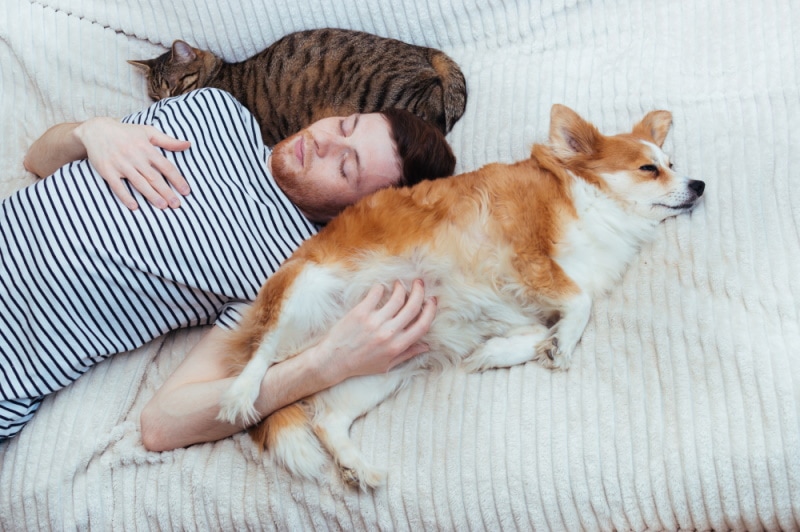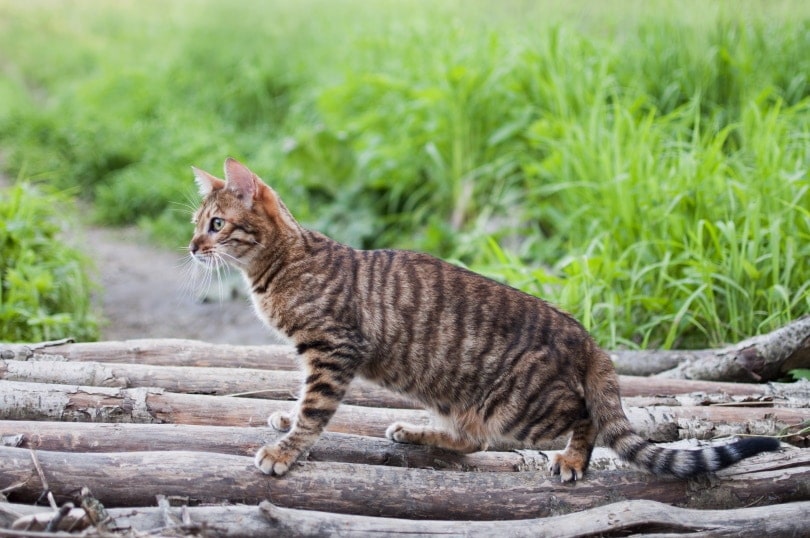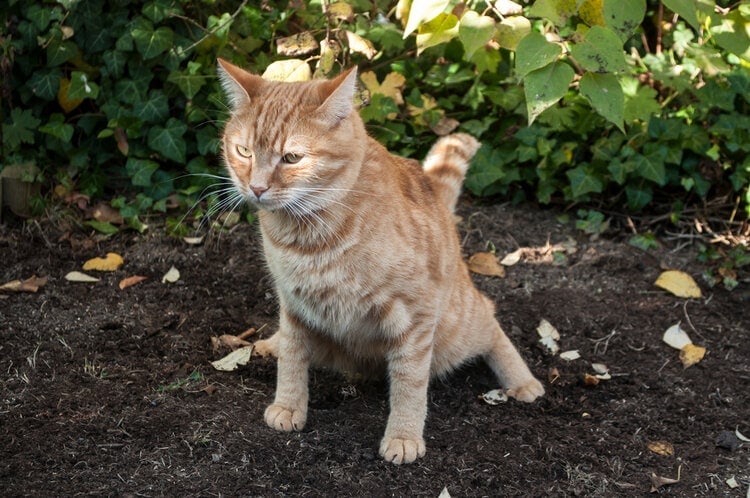Can Cats Eat Funyuns? Vet Approved Risks & Nutritional Advice

Updated on
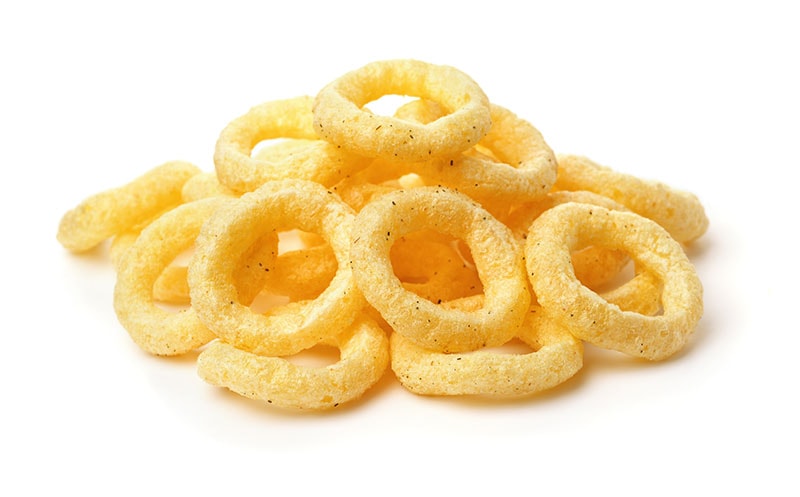
Click to Skip Ahead
Have you ever caught your curious kitty eyeing your bag of Funyuns and wondered if you could give them some? Well, we’re here to answer that intriguing question. Can cats eat Funyuns? Let’s untwist this onion-flavored mystery and dive into some deliciously crunchy facts!
Cats Shouldn’t Eat Funyuns
Cats should not eat Funyuns. Funyuns can be dangerous for cats, especially in large amounts. Although Funyuns are safe for humans (although not necessarily healthy), cats have different nutritional requirements, and can’t digest certain ingredients the same way that humans can. Let’s take a look at some of the risks of cats eating Funyuns.
Unsafe Ingredients
To start with, Funyuns aren’t actually onions, but they do contain onion powder and garlic powder. These ingredients are toxic to cats when consumed in large enough quantities. Onion and garlic contain compounds that damage red blood cells, leading to a condition known as anemia. Anemia can cause lethargy, pale gums, rapid breathing, weakness, and other side effects. In severe cases, it can even lead to death. Therefore, cats should never be given snacks like Funyuns or anything with onion or garlic powder in them.
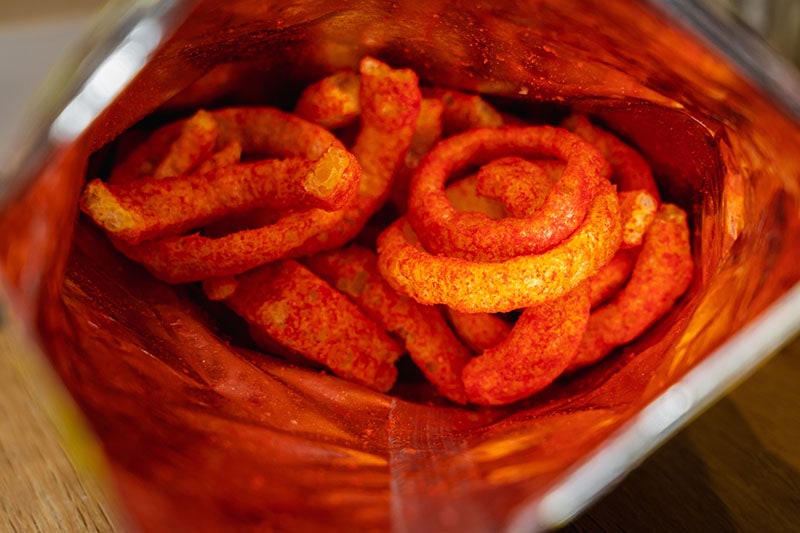
High Sodium Content
Funyuns, like many processed snacks, contain high levels of sodium. While sodium is a necessary mineral in a cat’s diet, it should be carefully regulated. Consuming large amounts of sodium in one sitting can lead to a condition known as salt poisoning. This condition can cause signs such as vomiting, diarrhea, lethargy, and incoordination.
Fried in Oil
Funyuns get their signature crispiness from being fried in oil, another one of the things on the list that cats just don’t need. Oil is high in fat, and diets that are high in fat can contribute to weight gain and obesity, which can in turn contribute to diseases like diabetes and joint issues.
Risk of Choking
In addition to the harmful ingredients found in Funyuns, the physical properties of the snack also pose a danger to cats. Funyuns are hard, crunchy snacks that have a ring-like shape. If a cat tries to swallow a Funyun whole or bites off a piece that’s too large, it could become lodged in their throat, causing choking. Even if the cat manages to swallow the Funyun, the hard texture could potentially cause damage to the cat’s esophagus or digestive tract.
What to Do If Your Cat Eats a Funyun
If your cat eats one Funyun, they will more than likely be fine, but they might experience signs like vomiting, diarrhea, and lethargy. Contact your vet immediately if you notice these signs. They can provide guidance based on your pet’s size, health status, and the amount consumed. If your cat happens to eat many Funyuns, contact your vet sooner rather than later to determine the next best step.
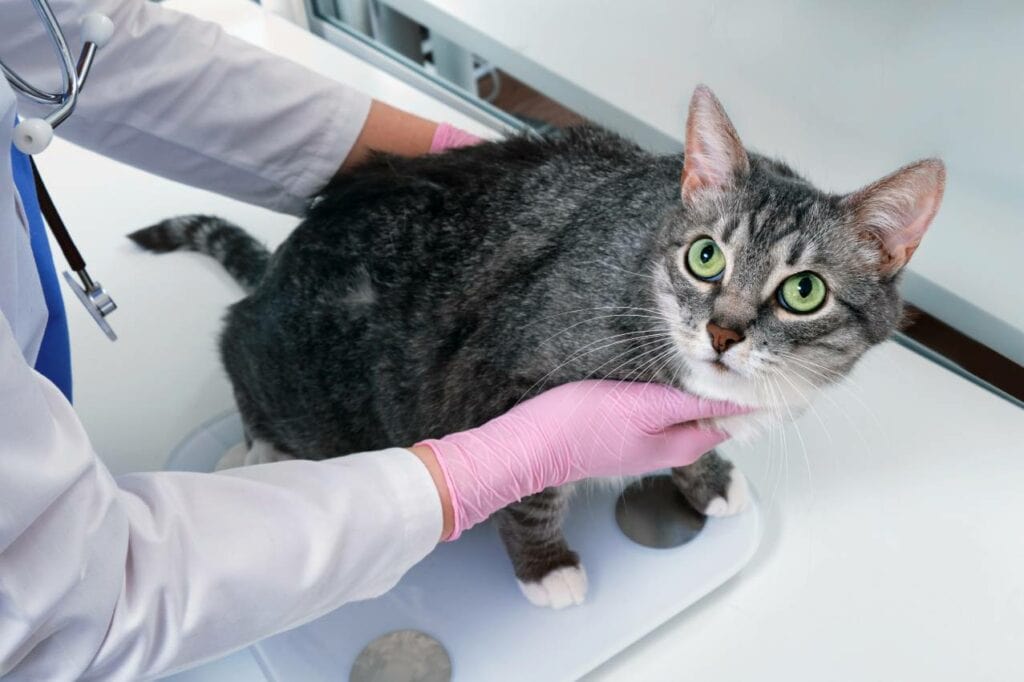
Healthy Snack Alternatives for Cats
Processed snacks, like Funyuns, are designed for human consumption, not for cats. They contain ingredients and nutritional profiles that do not align with a cat’s dietary needs. Regular consumption of such snacks can lead to health problems in cats.
Instead of Funyuns and other processed foods, there are better alternatives that are much healthier for your cat and/or formulated to better meet their nutritional needs. Just remember that snacks shouldn’t exceed 10% of a cat’s daily caloric intake.
Commercial Cat Treats
Commercially available cat treats are a great way to reward your feline friend. These treats are specially formulated to be safe, nutritious, and appealing to cats. They come in a variety of flavors such as chicken, fish, or liver and can offer different textures like crunchy or soft, catering to different feline preferences.
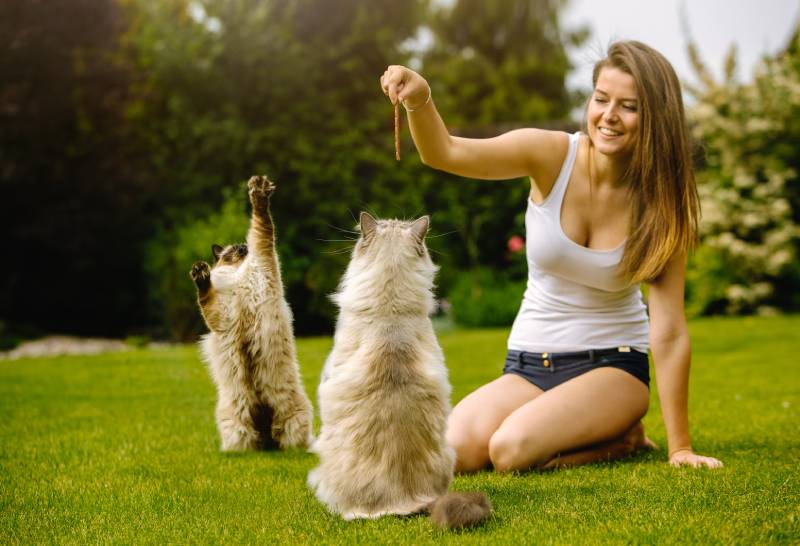
Dental Treats
Some commercial cat treats are designed specifically to promote oral health. These dental treats help to reduce plaque and tartar build-up, contributing to better oral hygiene and potentially reducing the risk of dental disease.
Nutritional Supplements
Certain cat treats also serve as nutritional supplements. For instance, treats enriched with omega-3 fatty acids can support skin and coat health, while those fortified with taurine can promote heart and eye health.
Fresh Meat
Fresh meat is another excellent snack option for cats. Small pieces of cooked chicken, turkey, or fish can make a delicious and healthy treat. Always ensure the meat is thoroughly cooked to eliminate any potential bacteria and parasites, and remove any bones to prevent choking and cut off excess fat. Also, refrain from adding seasonings or sauces, as many spices and additives can be harmful to cats.
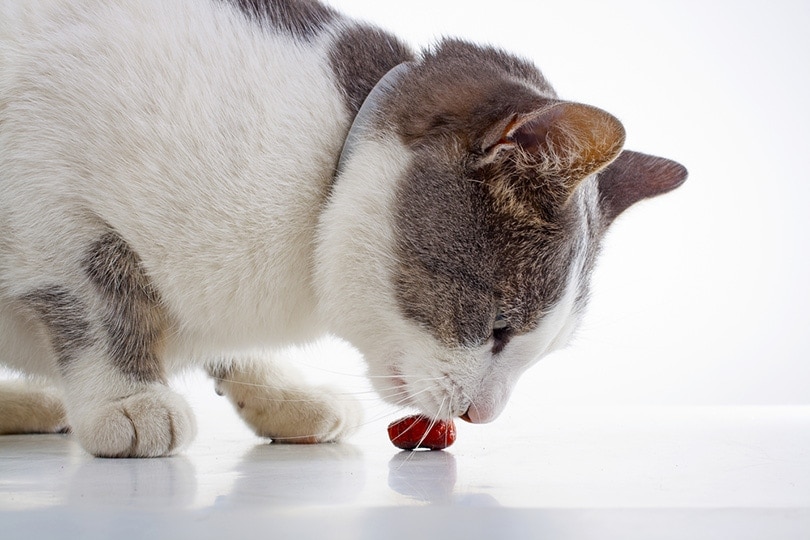
Vegetables
While cats are obligate carnivores, some may enjoy nibbling on certain vegetables, which can add variety to their diet and provide additional nutrients. Vegetables like peas, carrots, pumpkin, and green beans can be suitable for cats. They should always be cooked to soften them and either pureed or finely chopped to aid digestion.
However, not all vegetables are safe for cats, and some, like onions and garlic, can be toxic. Therefore, always research or consult with a vet before introducing a new vegetable into your cat’s diet.
Conclusion
Navigating the world of what your feline friend can and can’t eat can be a bit tricky. While their curiosity might make them interested in trying everything you’re eating, remember that many human foods, including Funyuns, are not safe for them.
Instead, providing your cat with healthy snacks is a rewarding way to supplement their diet and strengthen your bond. Always remember that treats and snacks should only make up less than 10% of your cat’s daily caloric intake, with the remainder coming from a balanced, nutritionally complete cat food.
By understanding your cat’s dietary needs and avoiding harmful foods, you can contribute to them living a healthy and long life.
Featured Image Credit: Anton Starikov, Shutterstock



